- Home
- Paul Finch
Dead Man Walking Page 6
Dead Man Walking Read online
Page 6
It was scree; masses of broken rocks ramped sharply uphill in front of them.
‘This way!’ Tara said, pulling Jane in a different direction, but stones continued to crack and tumble beneath their boots, creating a racket that would carry across the night. ‘He’s stopped whistling at least. Probably lost track of us.’
‘Don’t be ridiculous. He can’t not know where we are with all this hullaballoo.’
‘Maybe he’s just had enough then?’
Panting hard, the blood pounding in their ears, they forged on. They were on higher ground now, the chunks of debris larger. Soon they were having to pick their way between them rather than scrambling over them, though this at least was a quieter process. In fact, colossal boulders now lay in their path, which afforded a sense of protection. They slid between them in single file, their waterproofs hissing on the rugged stone.
‘Don’t worry, this is all good,’ Tara whispered. ‘Crooked passages. He can’t come on us by surprise in one of these. We can lie low. Get down, wait a few minutes …’
‘We should press on,’ Jane said, in front, slapping her hands along the surfaces to either side.
‘Let’s at least stop, see if we can hear anything.’
They halted again, their breath furling in semi-frozen plumes. It took several seconds for the noise of this to subside, and then there were several seconds more of nothing – before they heard the whistling.
It was just above their heads.
They glanced upward.
He was only vaguely visible – an apelike silhouette crouched on top of the boulder on their left. His huge, misshapen head, almost certainly hooded, was inclined down at them. He stopped whistling half a second before he dropped. It was impossible to judge how big or heavy he was, but when he crash-landed on top of Jane, who, though stocky of build was only five feet four, she collapsed beneath him with a muffled shriek. Tara, standing rigid and helpless, didn’t quite see what happened next, though she heard it: a succession of heavy blows. She thought a brawny arm was rising and falling, and maybe that was a jagged stone clutched in its gloved hand. With each impact, Jane gave a low, tortured moan.
‘Stop … please,’ Tara stammered.
The flurries of movement ceased. With a creak of waterproofs, the muffled shape turned its heavy, brooding head towards her. She heard a thud as the stone was released, saw an arm slide out of sight, heard a distinctive click. Tara knew very little about guns, but she’d seen enough of them on the television to recognise when a firearm was being cocked.
That was the tipper. The moment the adrenaline broke her paralysis.
She twirled around, fighting back along the crooked defile into open space, and there barked her shins against low, unseen edges. She barely felt the pain; the main problem was that she fell sideways, winding herself, another sharp stone digging into her hip. From here, she scrambled along on her hands and knees, sensing rather than seeing the humanoid form emerging from the defile behind her. She knew it would be pointing the gun in her general direction. Tears streamed down her face as she jumped to her feet and started running again, blindly but desperately, putting as much distance as possible between them: ten yards, twenty, thirty, forty. Surely she was out of sight now? He couldn’t see her to shoot. Fifty yards, sixty …
Heck’s eyes flirted open.
A first he wasn’t sure what had disturbed him. Then he realised: a distant noise like a reverberating boom.
A gunshot … maybe.
He pushed the quilt aside, sat up and took his watch from the bedside table. Its neon numerals read: 00.18.
He hadn’t been asleep long. He got up, wandered across the bedroom and shifted the thin curtain. It was impossible to see anything out there. The fog was like grey sediment swirling in liquid.
‘What is it?’ Hazel asked sleepily.
‘Dunno. I thought … Did you hear something?’
‘Outside?’
‘I thought so.’
‘Like what?’
‘Not sure. Gunfire perhaps.’
She yawned. ‘That wouldn’t exactly be unusual around here.’
‘No,’ Heck conceded. He was still getting used to the idea that a much higher percentage of the population of this rural county held shotgun licences than they did back in the cities where he’d formerly worked. ‘Bit late at night though, isn’t it?’
‘Car backfiring?’
‘Perhaps.’ He hung around at the window a few moments, until a gentle susurration from the pillow indicated Hazel had gone back to sleep. Eventually, wondering if he’d dreamed it, he drifted back to bed.
Tara covered another fifty yards before she realised she’d been shot.
Initially it had been like a blow on the back of her shoulder. A hard one, of course. It had driven the wind out of her, but sheer terror kept her on her feet, kept her motoring forward. Now however, very suddenly, her strength was draining, an intense pain spreading through the top right quarter of her body. The arm itself had turned numb – she had no sensation below the elbow. Under her clothing, that whole side of her body swam with hot fluid.
‘Please,’ she mumbled as she lost the coordination of her limbs. Her balance was all out, her legs wobbling. She realised the darkness filling her eyes was no longer just the darkness of night and fog. When she tottered over the precipice, she could hardly be blamed, because she hadn’t even seen it.
Only vaguely aware she was falling, Tara spun downward for half a second, caroming outward from a jutting overhang made spongy by grass and rotted ferns, turning somersaults though icy emptiness, before hitting another shelf. This blow was phenomenal in its force, but again cushioned by sodden vegetation. Instinctively, she tried to grapple with it, but in mid-somersault all this did was wrench her left shoulder out of its socket and snap her humerus. In freefall again, she was engulfed by roaring, ice-cold water, and then hit by mud and rocks angled sharply downward, so that she slid on her back, until a heavy stone caught her feet and flipped her forward. Craggy edges tore at her ribs and rent her face, and then she was in mid-air again, descending through icy spume, the ear-pounding thunder of which overwhelmed all her senses.
Chapter 3
‘It came over the wire during the early hours,’ Mary-Ellen said to Heck as he checked into Cragwood Keld police station at eight the following morning.
It wasn’t a real police station. It was located at the west end of the village, on a residential cul-de-sac called Hetherby Close, and was no more than a detached, whitewashed cottage which had been adapted for police use about ten years ago. It had stood empty for much of that time, only opening a few months back as part of ACPO’s new rural crime initiative. A Cumbria Police noticeboard and an emergency phone stood on the front lawn, and wanted and mis-per posters decked its porch, but though it had a small front desk just inside the glazed front door – which was only open to customers temporarily, as Mary-Ellen had to patrol as well as answer call-outs – there was no facility to hold prisoners. The main office, where Heck and Mary-Ellen’s desks faced each other over about three yards of carpet space, was in the rear of the building, where a large bay-window overlooked what had once been a garden, but was now a covered storage area for rescue and road-traffic equipment.
Heck yawned as he sipped his cup of tea.
Mary-Ellen read on through the email. ‘Ambleside Mountain Rescue got a call from the owner of a campsite up at Watendlath. He’s a bit concerned about two girls – a Jane Dawson and Tara Cook. Seems they checked out of his site a day early, said they were spending the last night of their holiday at Stagshaw View, which is a B&B in Ambleside. Then they set off on foot. He reckoned they must have been planning to yomp it through the northern Pikes. Trouble is, that was before the fog came down. He was already a bit worried, because he’d been observing them during the week and reckoned they were the most unprepared backpackers he’d ever seen. Around ten o’clock, when he saw what a pea-soup we were getting, he called Stagshaw View and was told the girls had never a
rrived. Called again at midnight, and at two – got the same response. He had emergency numbers for them – their own mobiles, which they weren’t answering, and numbers for their parents back in Manchester. He got in touch with them too, but they hadn’t heard anything from their daughters and didn’t even know they were missing. Now of course, the mums and dads are panicking.’
‘To be fair, we don’t know they’re missing yet,’ Heck said. ‘Not for sure.’
‘They still haven’t shown up.’
‘If they got caught in the fog last night, they might just have camped.’
‘The campsite owner said they wouldn’t have stood a chance. Anyway, this fog’s scheduled to last another day and night at least.’
Heck glanced through the connecting door to the front desk, and beyond that through the glazed front door to the outside, which was still concealed by an opaque grey curtain. It would be pretty nightmarish up on the fells, especially for someone with no experience and poor equipment.
‘If they were headed to Ambleside from Borrowdale, that’s some distance from here,’ he said.
‘Yeah, but Mountain Rescue reckon it wouldn’t have been difficult for them to get turned around in the fog. They’d most likely have tried to come around Ullscarf and Greenup Edge, rather than go over the top. If they couldn’t see their hands in front of their faces by then, it would have been easy to mistake High Raise for Calf Crag. If they did, that would bring them over Pavey Ark and down through Fiend’s Fell to the east side of Witch Cradle Tarn. And in reduced visibility, well …’
She didn’t need to elaborate. Heck was no mountaineer, but he’d been up there just to acclimatise himself to the region, and Fiend’s Fell would be no laughing matter in fog. A notch in the White Stones crags, in appearance it was very dramatic – a vast, bowl-shaped grassland, windswept and strewn with boulders, and yet it ended abruptly, the land dropping precipitously away into the Cradle. There were various routes down from there – chimneys, ravines and even waterfalls – but these were strictly the domain of skilled and experienced climbers, not weekend adventurers.
‘Think we should get the launch out?’ Mary-Ellen asked.
‘Yeah.’ Heck finished his tea at a gulp. ‘I do.’
In times long past, further back than anyone living in the Cradle could remember, Cragwood Ho, at the north end of Witch Cradle Tarn, had been little more than a remote farming community. Back in the day, when no one even maintained the roads leading up to this place, let alone provided gas, electricity and hot water, it must have been a spectacularly isolated spot.
It certainly felt that way today. ‘The Ho’, as it was known locally, was three miles due north of ‘the Keld’, and connected by a single-track lane, which proceeded in a more or less straight line along the tarn’s edge, occasionally looping inward amid dense stands of pine and larch. Always to its left stood the steep, scree-cluttered slope ascending to Harrison Stickle. Though narrow, the road was usually bare of traffic during the off-season, and relatively safe. Though on this occasion, with visibility so appalling, progress was reduced to a torturous crawl. Veils of milk-white vapour reduced their vision to two or three yards, while even full headlight beams failed to penetrate more than a foot or so beyond that.
‘Anyone lost on the fells in this is gonna be in real trouble,’ Mary-Ellen said, zipping her black anorak. The Land Rover was warm inside, but it had a chilling effect just peering into the shifting blankness.
‘Yep,’ Heck muttered.
‘Especially if they’re new to the area.’
He nodded again. The Pikes were not hugely extensive, but they were dominant features even in the dramatic heart of the Lake District; colossal granite pyramids, with deep, wooded glens knifing through the middle of them, and fast becks tumbling and cascading down their rolling, rocky slopes. A playground for the fit and energetic, certainly; but a trackless region too, which required knowledge and athleticism to navigate on foot. And now, of course, something else had occurred to him.
‘I don’t want to overstate the importance of this, M-E, but just after midnight last night I heard what sounded like gunfire.’
She glanced sidelong at him as she drove. ‘Where?’
‘Up in the fells.’
‘Any particular direction?’
‘Impossible to say. It was only one shot too, so … I don’t know, I might have been mistaken.’
Mary-Ellen pondered this.
‘You didn’t hear anything?’ he asked.
‘Nah. Hit the sack well before then. You know me. Sleep like a log.’
They cruised on at a steady six miles per hour, though even then it felt as if they were taking a chance. When a stag emerged from the fog in front of them, they had to jam on the brakes. The majestic beast had simply stepped from the vapour, little more than an outline in the misted glow of their lights, just about identifiable by its tall profile and the handsome spread of its antlers. It stood stock-still for a second, and then galloped off into the roadside foliage.
‘Probably the last living thing we’ll see out here,’ Mary-Ellen commented, easing back onto the gas.
‘Don’t know whether to hope you’re right or wrong,’ Heck replied.
He’d often heard the saying ‘no news is good news’, and couldn’t think of any dictum more worthless. At present, for example, they had almost nothing to go on. Before setting out, he’d checked with Windermere Comms, and had been given an update, which was mainly that there was no update, though they’d also been informed that, owing to the conditions, effective Mountain Rescue operations would be difficult – they might even be suspended – and it was certainly the case that no RAF helicopters could go up. Despite everything, it was deemed unlikely the two girls would have strayed from their intended route as far west as the Cradle, which was kind of encouraging, though the downside of this was that no extra bodies were being sent over here to assist. In the event there was a problem, Heck and Mary-Ellen were pretty much on their own.
Perched on the northernmost tip of Witch Cradle Tarn, Cragwood Ho was the archetypical Lakeland hamlet. Of its four houses, only two were occupied full-time. The empty units comprised a stone-built holiday let, once a working stable but still in the ownership of Gordon Clay, a farmer over Coniston way, and at this time of year almost always closed up, while the other, another former farm building, was now used as a second home by a family from south Lancashire. Aside from the Christmas season, this second house also stood unused during the winter months. Both of these premises were located on the west side of Cragwood Road. The hamlet’s only two permanent residents lived on the east side of the road, next door to each other, right on the tarn’s shoreline.
Cragwood Road itself ended in Cragwood Ho. As soon as it passed through the small clutch of houses, it ascended a few dozen yards into a gravelled parking area, where all further progress by normal vehicle was blocked by a dry-stone wall with a gate and a stile. Beyond that, a treacherous footway, the Cradle Track, snaked its way up into the Pikes; at its lower section this was just about wide enough for vehicle use, but most of the time the gate was kept barred. The car park was usually full during the spring and summer, walkers and climbers viewing this as the most immediate access to the Central Lakes massif, while the early autumn saw no shortage of visitors either. But at present, as Heck and Mary-Ellen coasted up into it, the Land Rover’s tyres crunching to a halt against its rear wall, they appeared to be alone.
Visibility was still negligible. They couldn’t even see the entirety of the car park. Further wafts of milky vapour flowed past as they climbed out, pulling on their gloves and woolly hats. As usual, Mary Ellen was in uniform, while Heck, as a CID officer, wore his regulation sweater, canvas trousers and walking boots, though on a day like today both also pulled on hi-viz waterproof overcoats with POLICE stencilled across the back in luminous letters.
‘Quiet as the bloody grave,’ Mary-Ellen said, her voice echoing eerily.
Heck took the loudhailer fro
m the boot. ‘At least if these lasses are stuck somewhere nearby, it shouldn’t be difficult getting them to hear us.’
They set off down the side path which dropped steeply from the car park, and led along the front of the two houses on the water’s edge.
The house on the right was called Lake-End Cottage, and its inhabitant was a certain Bill Ramsdale, a onetime married man and academic who now, in his mid-fifties, had become a reclusive loner and apparently, a writer, though Heck had never seen his name in a bookshop, either online or in the real world. His house was a small, scruffy cottage, the downstairs of which was almost entirely taken up by his study, but it was also surrounded by acres of untrimmed lawn, which rolled impressively down to the waterside and terminated at a private jetty. Given the usual prices in the Lake District, such a plot ought to have cost him a pretty penny. Whether he was rich or poor, Ramsdale was notoriously ill-tempered about his privacy. Twice he’d been spoken to by Mary-Ellen for showing a belligerent and even threatening attitude to hikers who’d strolled down across his land to the tarn’s edge, unaware they were trespassing thanks to most of his perimeter wall having collapsed and his grass being overgrown.
The second resident, Bessie Longhorn, was an altogether more likeable sort. Just turned twenty, she was a little rough around the edges – only poorly educated, and thanks to a lifetime of semi-isolation in the Cradle, minus a fashion sense or any real knowledge about youth culture in general – but she was a friendly kid and always eager to please, especially when it came to Heck. Bessie’s cottage, formerly a farmhouse and so considerably larger than Ramsdale’s, with numerous run-down outbuildings attached, belonged to her mother, Ada, who was only sixty-five but in poor health and residing in sheltered accommodation in Bowness. For obvious reasons, Ada considered it important that Bessie get used to being independent, even though this meant the younger woman didn’t get to visit her old mum as often as they’d both like. For all that, Bessie was a happy-go-lucky character, who filled her time doing odd jobs for the residents of Cragwood Keld at the other end of the tarn. She’d once offered to help Ramsdale by mowing his unruly lawn, but the surly neighbour had responded by telling her to ‘keep the fuck away’, so now Bessie, who was reduced to tears quite easily, did exactly that.

 Stolen
Stolen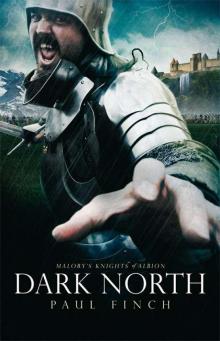 Dark North mkoa-3
Dark North mkoa-3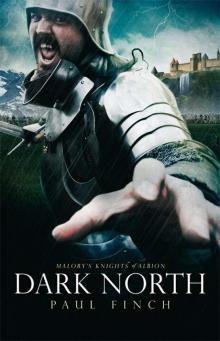 Dark North (Malory's Knights of Albion)
Dark North (Malory's Knights of Albion)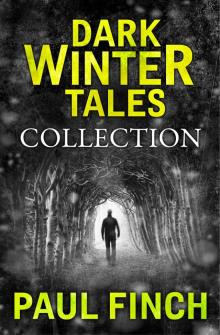 a collection of horror short stories
a collection of horror short stories Sacrifice
Sacrifice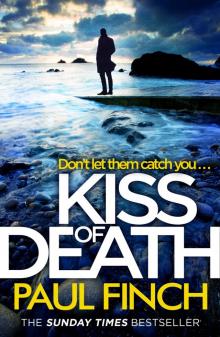 Kiss of Death
Kiss of Death Medi-Evil 2
Medi-Evil 2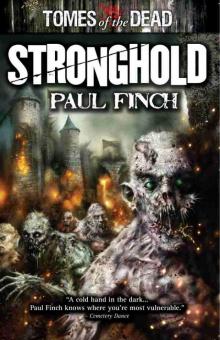 Stronghold
Stronghold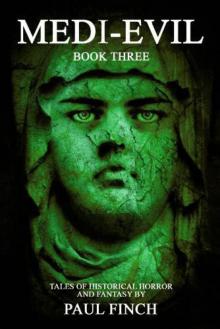 Medi-Evil 3
Medi-Evil 3 Dead Man Walking
Dead Man Walking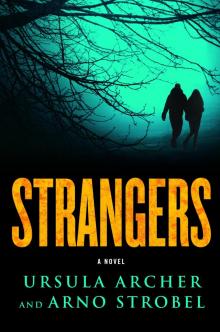 Strangers
Strangers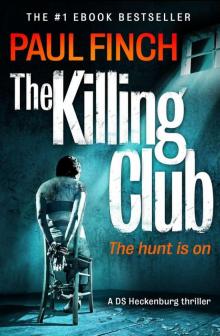 The Killing Club
The Killing Club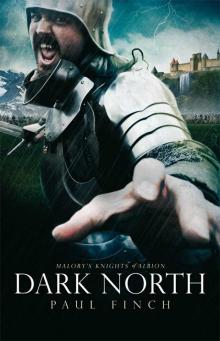 Dark North
Dark North A Wanted Man
A Wanted Man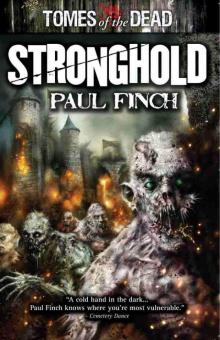 Stronghold (tomes of the dead)
Stronghold (tomes of the dead) Hunted
Hunted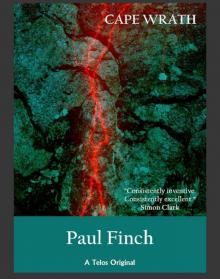 Cape Wrath
Cape Wrath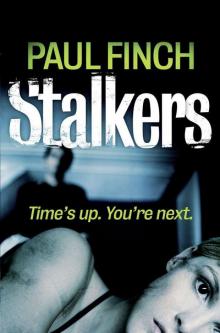 Stalkers
Stalkers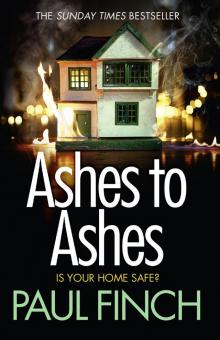 The Burning Man
The Burning Man Medi-Evil 1
Medi-Evil 1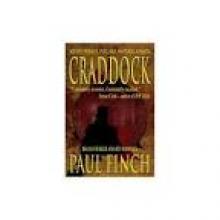 Craddock
Craddock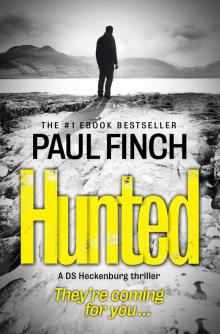 Hunted (Detective Mark Heckenburg Book 5)
Hunted (Detective Mark Heckenburg Book 5)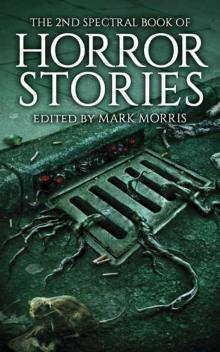 2nd Spectral Book of Horror Stories
2nd Spectral Book of Horror Stories The Chase
The Chase